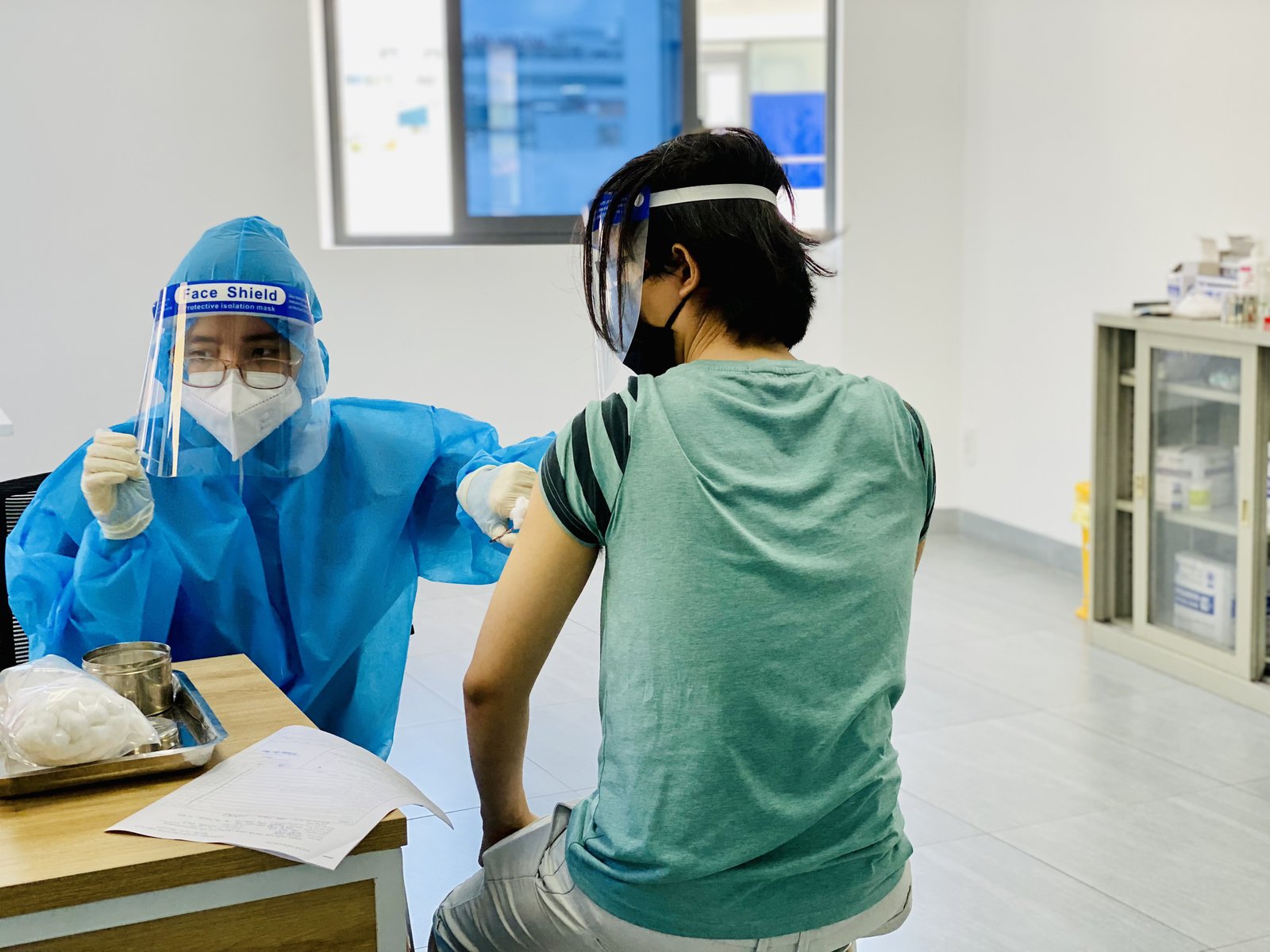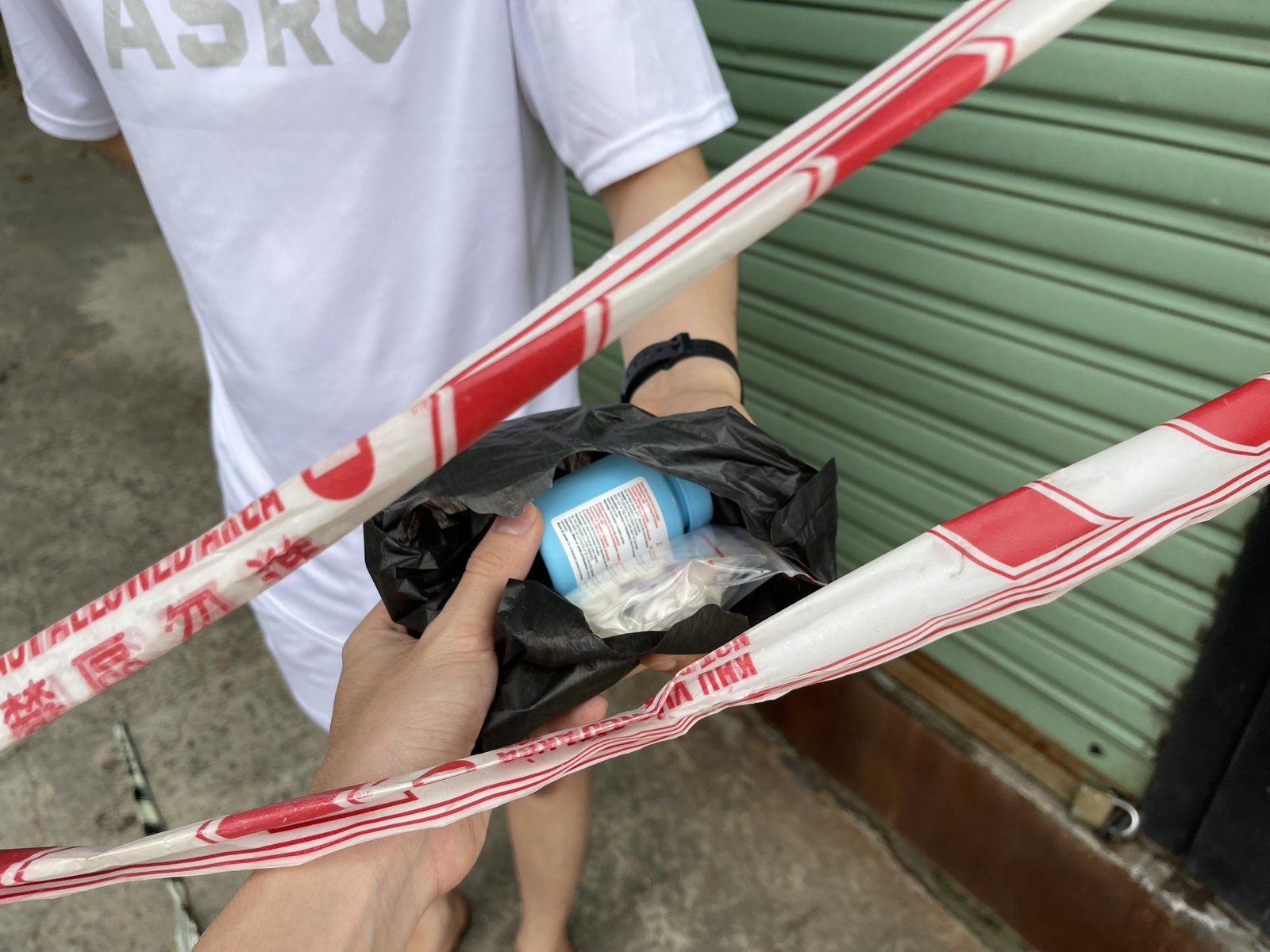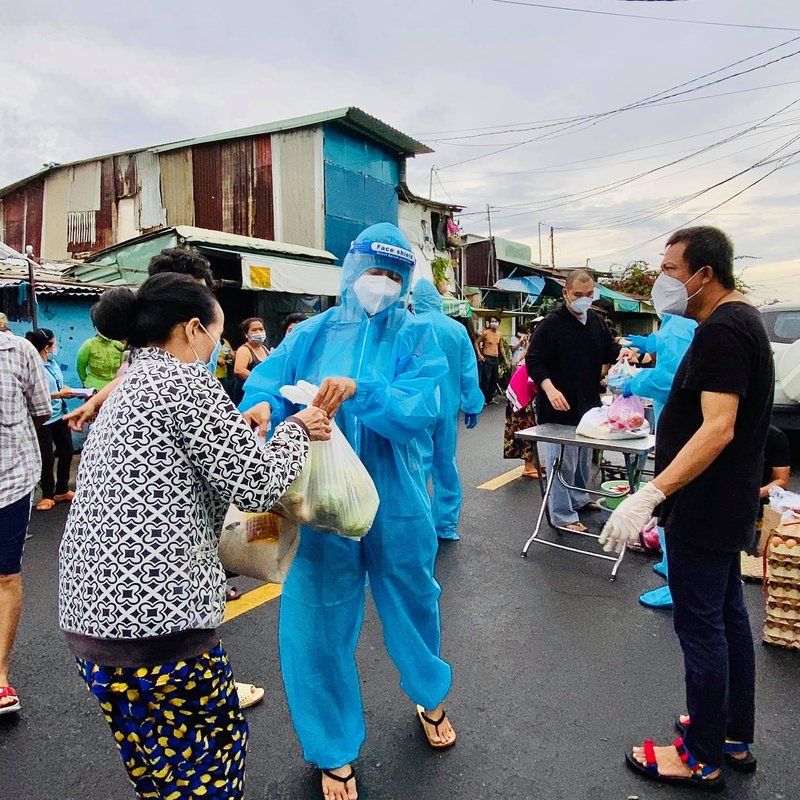Vietnam’s rigorous contact tracing and proactive social distancing measures kept the pandemic at bay for more than a year. But the 2021 Delta variant and low vaccine coverage (just 2 percent of Vietnam’s 98 million citizens were fully vaccinated by August) combined to create a debilitating surge in COVID-19 infections and deaths.
Following recommendations made by the US Agency for International Development/PATH Healthy Markets project, the Ministry of Health has begun tapping social enterprise groups in the HIV community to maintain health services during lockdowns and support COVID-19 vaccine rollout to hard-to-reach populations.
Private clinics central to vaccine deployment
In July, the Ho Chi Minh City (HCMC) Department of Health requested that Galant polyclinic, a Healthy Markets-supported key population-led social enterprise, urgently assist with the city’s vaccination campaign. Galant quickly assembled a team of eight clinic staff to support HCMC’s many pop-up vaccination sites.
“Galant clinic is proud to contribute to the city-wide COVID-19 vaccination campaign,” says Do Quang Khang, Director of the Galant polyclinic. “I strongly believe with our joined hands—private sector supporting the public—we’ll win against COVID-19.”
Since they began supporting the Department of Health, the Galant team has vaccinated more than 35,000 people in HCMC.
Three more clinic teams have joined the nationwide effort since August. In HCMC, the Department of Health invited My Home and Glink social enterprise clinics to support the vaccination of the general population and people living with HIV—a group that is highly susceptible to COVID-19. So far, My Home has vaccinated 400 of its clients, and Glink has vaccinated 3,600 individuals, including people living with HIV. And in Hanoi, key population-friendly polyclinic Bien Viet has been enlisted in the capital city’s vaccination campaign, delivering more than 6,000 vaccines between August 12 and September 16.

Private clinic health care worker administering a COVID-19 vaccine in Ho Chi Minh City, Vietnam. Photo: My Home clinic.
Bringing COVID-19 care to the community
With community transmission rampant, key population social enterprise clinics are not only delivering vaccines, they are providing in-home care for clinic clients and community members diagnosed with moderate to severe COVID-19. This includes a package of telemedicine to provide care and counseling for clients; home care packages and visits to address persistent fever, cough, and myalgia, and to monitor oxygen saturation levels using pulse oximeters; and food support for those in need.
One special initiative championed by My Home social enterprise clinic is a task force team known as “Doctor’s Embrace.” The team consists of 16 volunteer medical professionals across different provinces who provide virtual support to COVID-19 patients at home, especially to those in difficult financial situations who cannot afford medical care or basic medicines.
“The Doctor's Embrace team has received more than 2,700 calls in under two months,” says Nguyen Anh Phong, My Home’s Deputy Director. “While this overwhelming response has put extremely high pressure on us, we know that those with COVID-19 and their families are in critical need of professional advice and support during this tough time.”
The team is also implementing online communications activities among people diagnosed with COVID-19 to understand what they need to prepare for home isolation, how to manage their symptoms, and other COVID-19-related information.

Glink clinic has been using online communications to support people diagnosed with COVID-19 and increase trust in vaccines. This includes support to patients self-treating for COVID-19 at home who are on pre-exposure prophylaxis (PrEP).
Another Healthy Markets partner, Glink clinic, holds a weekly “Community Care Forum” livestream that is addressing critical issues faced by their community during the pandemic, including responding to questions on COVID-19 vaccination, caring for symptoms at home, and returning to the “new normal” following the lockdown. The livestreams have generated a combined 14,000 views.
A lifeline for local communities
Use of telemedicine, coupled with home delivery of HIV prevention and treatment drugs, HIV self-tests, and other health commodities, has been critical to maintaining continuity of care for more than 550 people living with or at risk for HIV.

A Glink clinic staff provides antiretroviral drugs to a client in quarantine as part of a social contracting pilot implemented by the Dong Nai Centers for Disease Control and Prevention and Glink in Dong Nai Province, Vietnam. Photo: Glink Dong Nai.
In addition to supporting vaccine distribution, key population-led clinic partners are providing mental health care and support for key population clients and clients living with HIV through one-on-one Zoom-based counseling, online support groups, weekly livestreams, and online informational campaigns on platforms frequented by key populations, such as Blued (a mobile dating app) and Rainbow Village (a Facebook page where more than 220,000 followers can share experiences, discuss HIV prevention, and build community).
Critically, for clients who are food insecure, 12 key population-led clinics and organizations are now spearheading food distribution, reaching 2,820 households thus far.

Staff from key population-led social enterprise clinics deliver food relief in Ho Chi Minh City, Vietnam. Photo: My Home clinic.
While the next phase of the COVID-19 response will be complex and intensive, key population-led social enterprise clinics have clearly demonstrated their leadership and capacity to deliver vaccines at large scale and provide care to people with COVID-19, while maintaining essential HIV and primary health care services for those who need them.
“We strongly believe that these partners will continue to play a very important role both in ending AIDS by 2030 and in alleviating the impact of COVID-19.”— Luong Quoc Binh, Vice-Head, HIV/AIDS Department, Ho Chi Minh City
“The community has played an essential role in the COVID-19 response through the tremendous contributions they have made to accelerate vaccine deployment and deliver online counseling, home-based care, and essential drug packages to communities who are in need,” says Luong Quoc Binh, Vice-Head of the HIV/AIDS Department at the HCMC Centers for Disease Control and Prevention.
“The spirit of helping each other as is the tradition of Vietnamese people is even more visible during this difficult time. We strongly believe that these partners will continue to play a very important role both in ending AIDS by 2030 and in alleviating the impact of COVID-19.”



